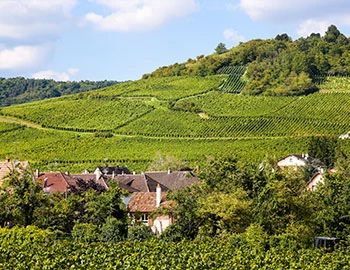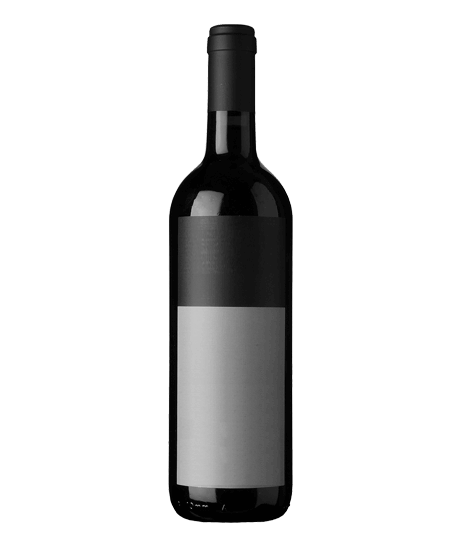
Clos de la Roche Vieilles Vignes Grand cru 1989
AC, Domaine Ponsot, 750 ml

| Grape variety: | Pinot noir |
| Producer: | Domaine Ponsot |
| Origin: | France / Bourgogne / Côte de Nuits |
Product information
Wine description with logo
-
Clos de la Roche Vieilles Vignes Grand cru 1989 en
-
Clos de la Roche Vieilles Vignes Grand cru 1989 de
-
Clos de la Roche Vieilles Vignes Grand cru 1989 fr
Wine description whitout logo
Wine description with logo
-
Clos de la Roche Vieilles Vignes Grand cru 1989 en
-
Clos de la Roche Vieilles Vignes Grand cru 1989 de
-
Clos de la Roche Vieilles Vignes Grand cru 1989 fr
Wine description whitout logo
Attributes
| Origin: | France / Bourgogne / Côte de Nuits |
| Grape variety: | Pinot noir |
| Drinking temperature: | 16 to 18 °C |
| Volume: | 13.5 % |
| Note: | Contains sulphites |
Pinot noir
Blueprint of the terroir
No other variety expresses its terroir as precisely as Pinot noir. It is a sensitive, fragile grape. But when it succeeds, it gives the world some of its very greatest wine plants. It especially excels in Burgundy, where it has been cultivated for at least 700 years. Even in the middle ages, it was considered so precious that it was kept separate from other grapes so as to not diminish its value. The finest examples are delicate and fragrant with aromas of cherries and red berries. With maturity, notes of forest floor, leather and truffles enter as well. An irresistible fruity sweetness still shines through, even after several decades. The Pinot noir does well in cool locations: in Switzerland and in Germany, where it is known as Blauburgunder and Spätburgunder respectively; in Alsace and in South Tyrol, in Oregon, New Zealand and Tasmania. Not least, it yields fantastic champagnes. It is a wonderful culinary companion. With its soft tannins and charming bouquet, it meshes with everything, from Güggeli and cheeses to fried fish.
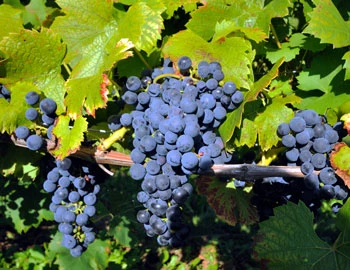
Côte de Nuits
Côte de Nuits: Pinots of world renown
The northernmost tip of Burgundy (only Chablis is located further north) is the area where the Pinot noir grape yields a whole range of rare crus that are unsurpassed in their synthesis of fullness and elegance. No wonder the names of villages like Vosne-Romanée, Chambolle-Musigny or Gevrey-Chambertin have an absolutely magical ring to Pinot lovers. The divisions of the sites into village, premier and grand cru appellations is complex, and the Côte de Nuits thus remains a fascinating enigma even for connoisseurs.
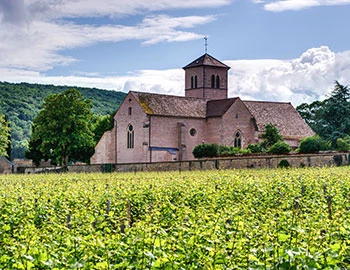
Bourgogne
Burgundy: home of the crus
Burgundy and Bordeaux are France’s most prestigious wine regions. Nonetheless, they are completely distinct in character: while Bordeaux, as the land of the chateaux, enjoys an aristocratic image, Burgundy has retained its rustic agrarian structure. Burgundy stretches for over 200 kilometres, from Dijon in the north to Lyon in the south. In a highly complex jigsaw of the most diverse of terroirs, Chardonnay and Pinot Noir demonstrate the subtle ways in which they embody their sources.
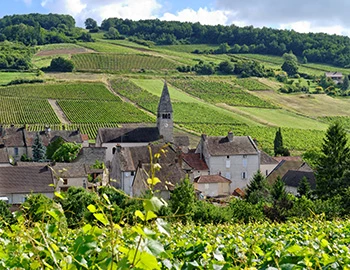
France
France – Philosophy in a bottle
According to French philosophy, wine should be an expression of the soil and climate. They use the word “terroir” to describe this. Terroir makes every wine different, and many especially good. French wine is regarded worldwide as an expression of cultural perfection. The French believe that humans are responsible for the quality of the berries, the vine variety for their character, and nature for the quantity. This philosophy can be expressed succinctly as: “the truth is the vineyard, not the man.”
